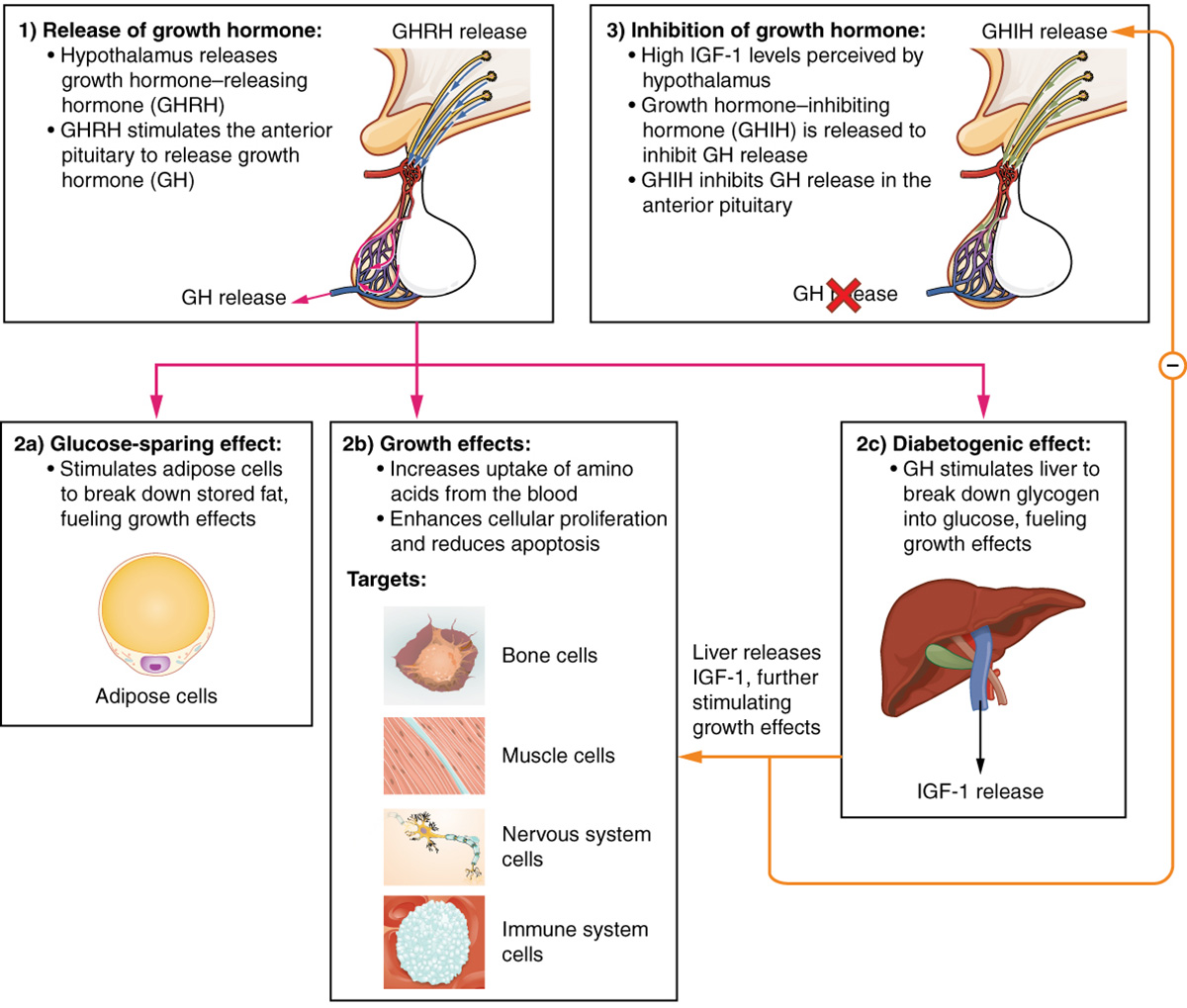
Introduction
Cells release chemicals called hormones, which send signals to other cells in the body, thus enabling the organism to function well. Hormones regulate the metabolism activate the immune system which helps the growth and reproduction processes and prepares the body for changes and affect mood, and feelings of hunger and pain. Glands in the body release these hormones.
Endocrine glands release the hormones in the blood stream which are then transported to the organs, sending the messages to these organs. Such glands are thyroid, sex glands, hypophysis, and adrenal glands. Other glands medically termed exocrine glands produce the hormones which are sent to the ducts, or channels, coming out of the glands, and then to the blood or directly to the nearby cells. Exocrine glands include sweat glands, salivary glands, mammary, liver, and pancreas glands.
The cells of the organs have receptors such as proteins for each type of hormone. Hormones respond to this specific receptor, attache to them and thus target the specific organ. When such bonds are formed between the hormone and its receptor the organ reacts and its mechanisms are activated. The organ then induces the processes in the body which will keep the balance of the organism and thus enable healthy conditions of the body. However, hormone changes disrupt the normal function between the organs and the hormones, resulting in certain body changes. These body changes influence the health and balance inside the body. Effects
Hormonal changes can affect all people, regardless of their age. Yet elderly people are more affected especially after the changes which come with years, for example during climax or menopause. Slight changes in the amount of released hormones leads to the changes in the body and are the cause of many diseases.
If the thyroid gland produces either too much or too little of the hormone, essential metabolic processes are disturbed. Hyperthyroidism (too much thyroid hormone) or hypothyroidism (too little) cause many health problems with the heart, bones and reproduction. If the pancreas decreases the production of the hormone insulin, a person develops a disease called diabetes, when the level of blood sugar is too high. Such an imbalance deteriorates health causes many health problems and difficulties.
Hormonal changes affect emotions so the person can be moody, anxious and sensitive. A person can have problems with sleep, appetite (either eat too much or too little), and hair loss. Women often experience irregular menstrual periods, infections, hot flashes and can even face problems with fertility. If left untreated, hormonal imbalances can cause severe health complications, so it is utterly important to consult the doctor, do medical tests and start the treatment as soon as possible.















-In-Adults_f_280x120.jpg)
Your thoughts on this
Loading...